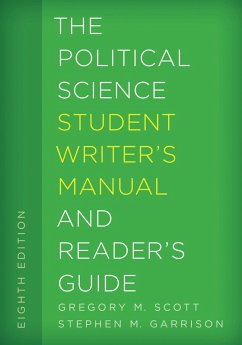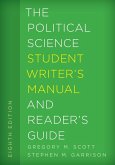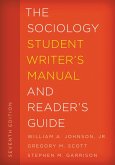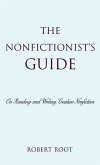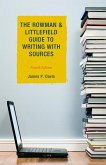The Political Science Student Writer's Manual and Reader's Guide is a practical guide to research, reading, and writing in political science.
The Political Science Student Writer's Manual and Reader's Guide, Eighth Edition, is a set of instructions and exercises that sequentially develop citizenship, academic, and professional skills while providing students with knowledge about a wide range of political and governmental concepts, phenomena, and information sources. It begins by teaching beginning students to engage newspapers and other political media sources critically and analytically. It focuses on the crafts of writing and scholarship by providing the basics of grammar, style, formats and source citation, and then introduces students to a variety of rich information resources including the Congressional Record, Federal Register, and the Library of Congress. Students actively apply their knowledge and skills by corresponding with their representatives and commenting on pending government regulations. Part 1 concludes with campaign management, policy analysis, legislation assessment, and similar exercises that develop student skilled-observation proficiency. Part 2 prepares students to research, read, write, review, and critique political science scholarship. Finally, Part 3 teaches advanced students how to investigate public opinion; analyze domestic and international public policies; author amicus briefs; and participate in the universal community that deliberates the continuing rich tradition of political philosophy.
The Political Science Student Writer's Manual and Reader's Guide, Eighth Edition, is a set of instructions and exercises that sequentially develop citizenship, academic, and professional skills while providing students with knowledge about a wide range of political and governmental concepts, phenomena, and information sources. It begins by teaching beginning students to engage newspapers and other political media sources critically and analytically. It focuses on the crafts of writing and scholarship by providing the basics of grammar, style, formats and source citation, and then introduces students to a variety of rich information resources including the Congressional Record, Federal Register, and the Library of Congress. Students actively apply their knowledge and skills by corresponding with their representatives and commenting on pending government regulations. Part 1 concludes with campaign management, policy analysis, legislation assessment, and similar exercises that develop student skilled-observation proficiency. Part 2 prepares students to research, read, write, review, and critique political science scholarship. Finally, Part 3 teaches advanced students how to investigate public opinion; analyze domestic and international public policies; author amicus briefs; and participate in the universal community that deliberates the continuing rich tradition of political philosophy.

